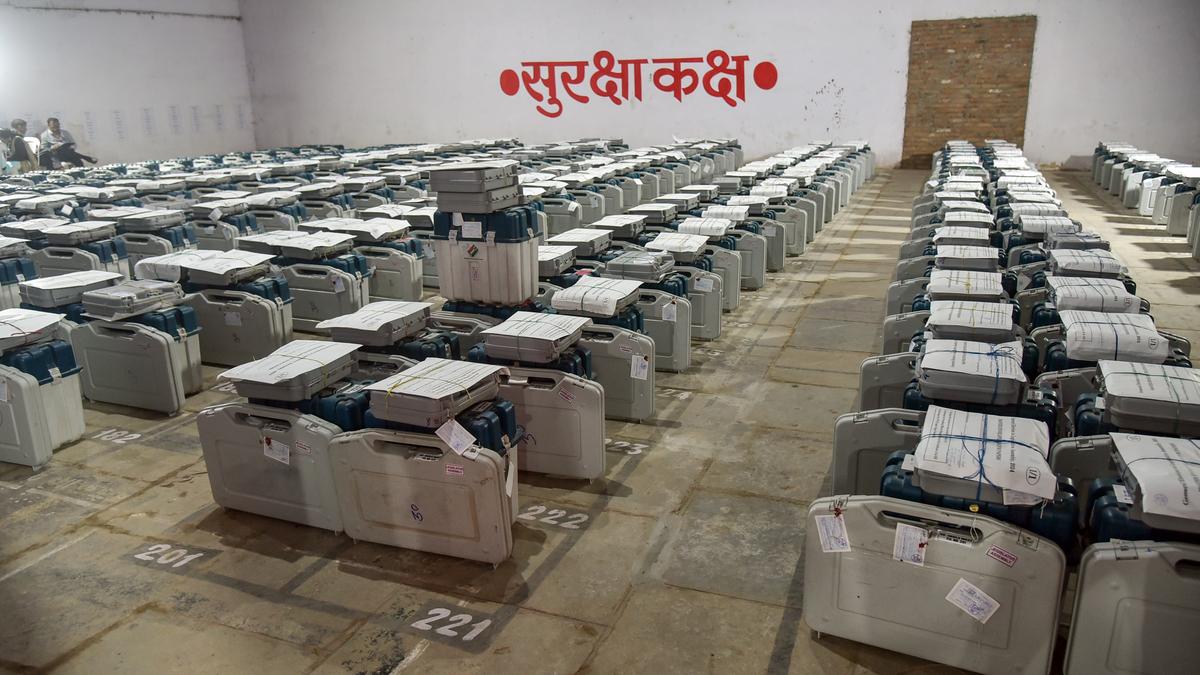
Are Congress’s EVM allegations a legitimate concern or a strategic diversion? Premium
The Hindu
Post-Maharashtra elections, Congress questions EVMs, but majority trust them, highlighting the need for credible political alternatives.
After the Maharashtra Assembly elections, the echoes of alleged Electronic Voting Machine (EVM) manipulation has once again reverberated through political spaces, particularly from the Congress party and its allies. This narrative of doubt had begun soon after Congress’s unexpected loss in Haryana, bringing the EVMs under scrutiny.
The Congress president Mallikarjun Kharge’s strong demand to reintroduce ballot papers by replacing the EVM highlights a recurring scepticism about the established electoral process. While such concerns warrant attention, it is equally vital to evaluate the degree of public trust in EVMs and probe why such claims persistently surface.
If EVMs were indeed vulnerable to manipulation, public opinion — the cornerstone of any democracy — would reflect such apprehensions. Understanding how much people trust EVMs provides crucial insights into whether voters feel their democratic rights are compromised. The National Election Study (NES) conducted by the Lokniti-CSDS earlier this year sheds light on this issue. In a survey across 21 States, the study revealed that a significant majority of voters expressed confidence in EVMs. Nearly one-third (31%) reported trusting the machines “a lot,” while another two-fifths (43%) said they “somewhat” trusted them. This cumulative trust — approximately three-quarters of voters — indicates a strong vote of confidence in the EVM technology.
However, distrust lingers among a notable minority. Around one fifth (17%) of respondents stated they did not trust EVMs at all, a figure that merits attention. This scepticism was particularly pronounced among urban voters (19%), individuals with college degrees (18%), and marginalised groups such as Dalits (19%) and Muslims (23%). Furthermore, distrust peaked in some States as compared to others. This scepticism was observed the highest in Tamil Nadu (30%), Rajasthan (24%), and Uttar Pradesh (23%). These findings indicate the need for a focused electoral outreach, and confidence-building measures by the Election Commission of India.
It is also important to note that the trust in EVMs has remained relatively steady over the past five years. In 2019, the then NES study indicated that over half the voters placed high trust in the machines, with nearly a quarter expressing moderate trust. While these proportions remain largely consistent in 2024, the share of those who distrust EVMs has risen slightly, from 14% in 2019 to 17% in 2024. This shift coincides with Congress’s sustained narrative questioning EVMs, which seems to resonate among its voter base. Among those expressing distrust, nearly one-third voted for Congress (35%) and another one-fifth (19%) voted for its allies (Table 1 & 2). This pattern suggests that EVM scepticism has become a political tool — a strategic plank for Opposition parties rather than a pressing concern for the Election Commission of India to resolve.
While Congress is entitled to question its electoral setbacks, as the principal Opposition party, it bears a greater responsibility to present credible alternatives to voters. Relying on EVM-related conspiracy theories as a “primary” critique of the ruling Bharatiya Janata Party not only undermines the integrity of democratic institutions but risks alienating voters seeking substantive changes in their lives and policy solutions. For instance, alleging that the BJP “allowed” the Jharkhand Mukti Morcha (JMM) to win in Jharkhand reflects a narrative that can not only be implausible but is also mean-spirited.
Instead of fixating on claims that have not yet been verified by the Election Commission of India, Congress must confront a larger question. Is the party genuinely offering a compelling vision for India, or is it merely evading the need for introspection by blaming its defeats on external factors? To make a strong comeback the party must craft a distinctive agenda capable of countering the BJP’s ideological narrative that runs at a mega scale. Resorting to allegations of EVM manipulation without real-time, verifiable evidence risks eroding public confidence in India’s electoral process.

The Karnataka government has drafted a comprehensive master plan for the integrated development of Kukke Subrahmanya temple, the State’s highest revenue-generating temple managed by the Hindu Religious Institutions and Charitable Endowments Department. The redevelopment initiative is estimated to cost around ₹254 crore and aims to enhance infrastructure and facilities for devotees.












